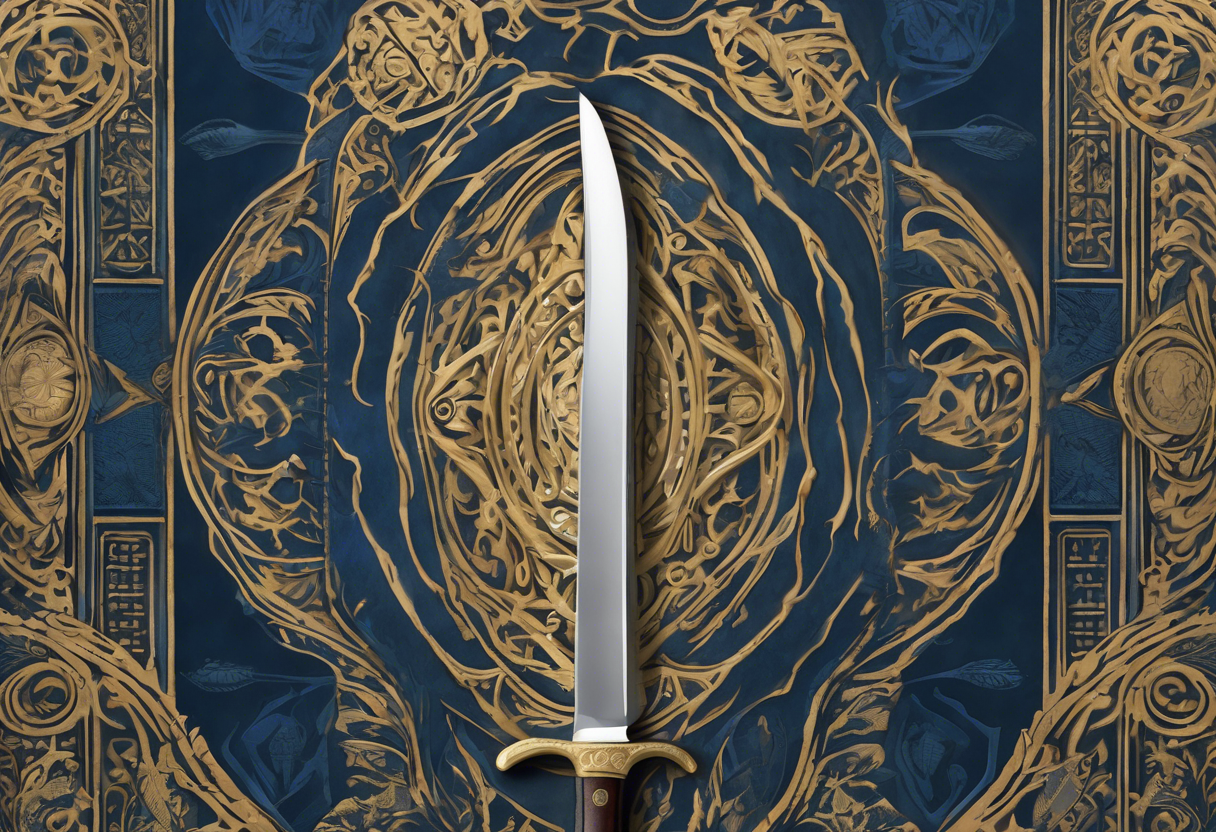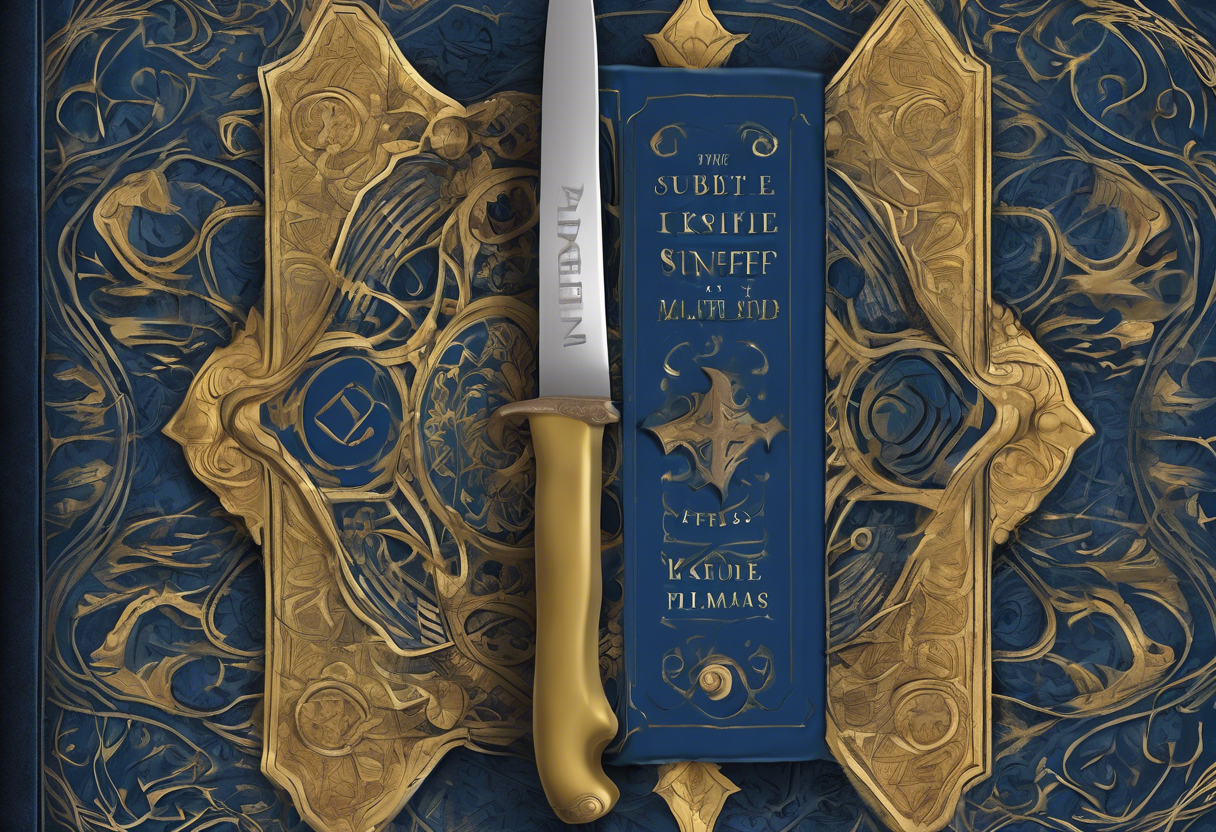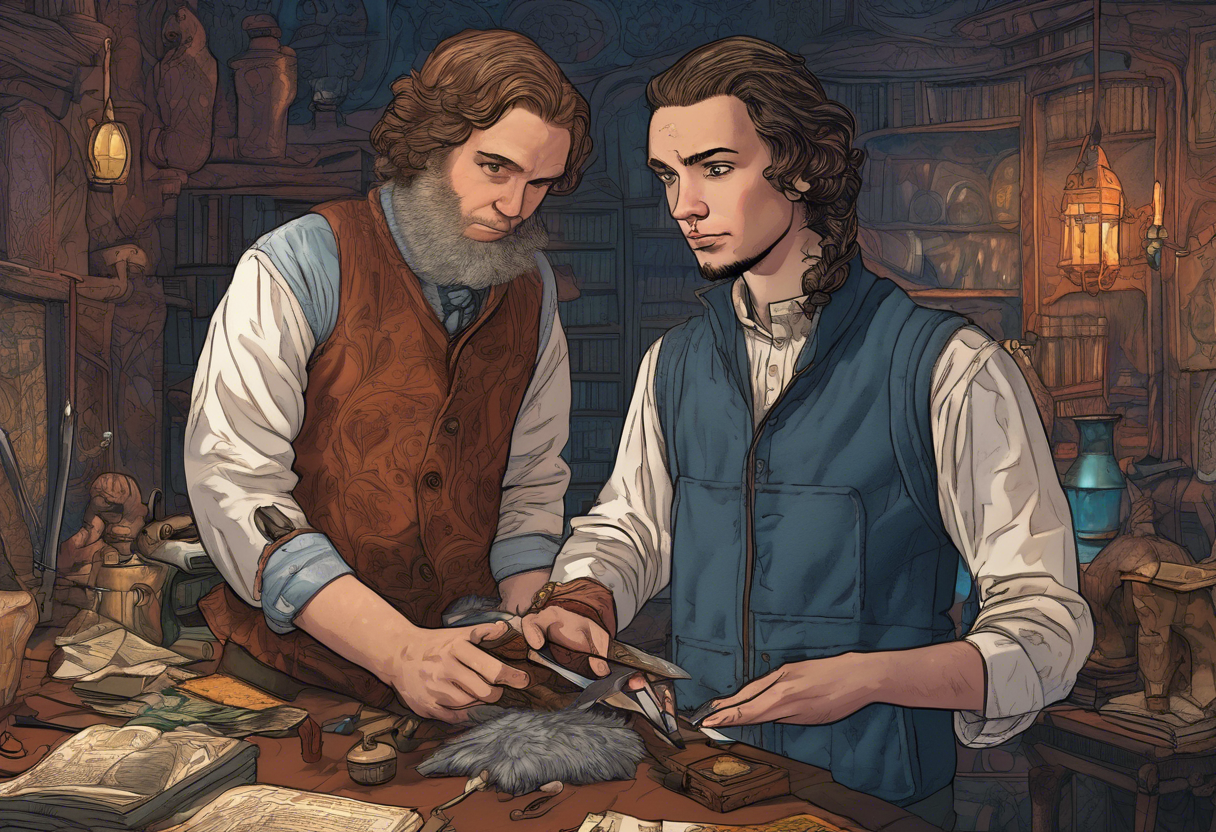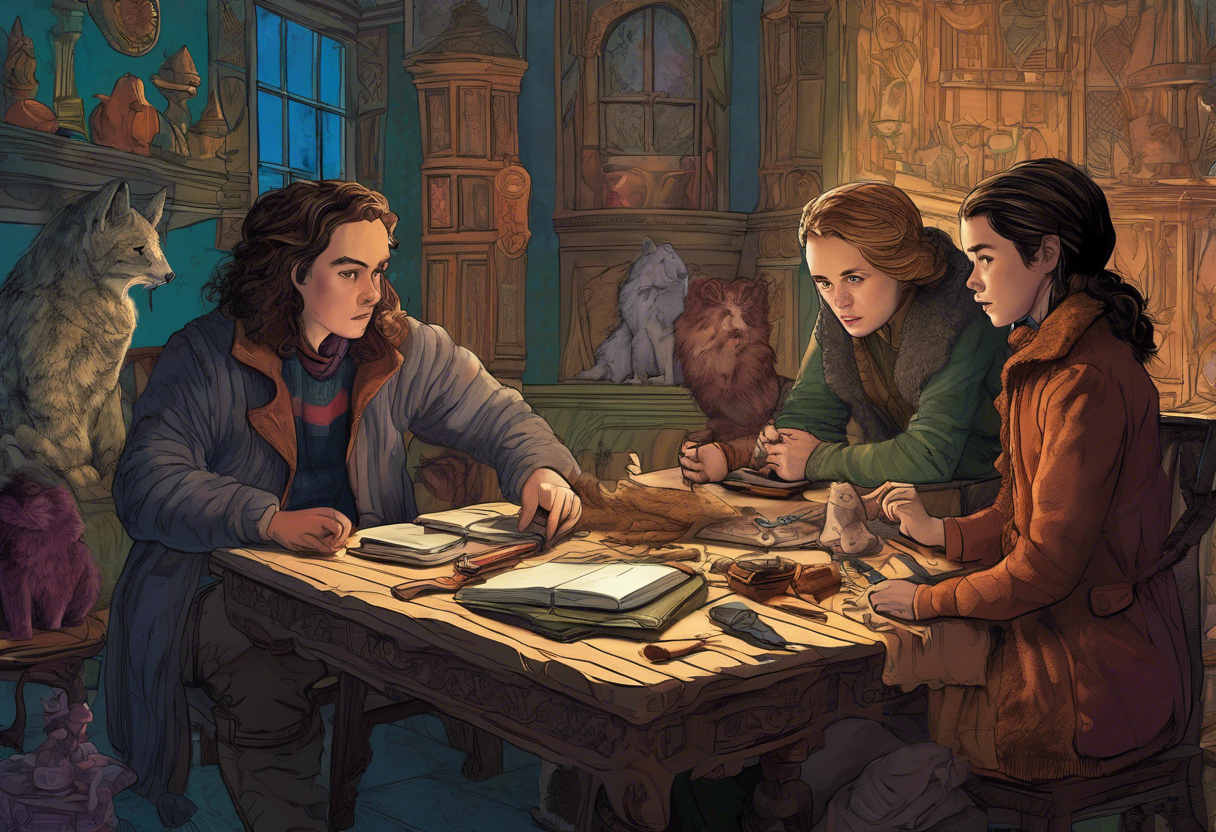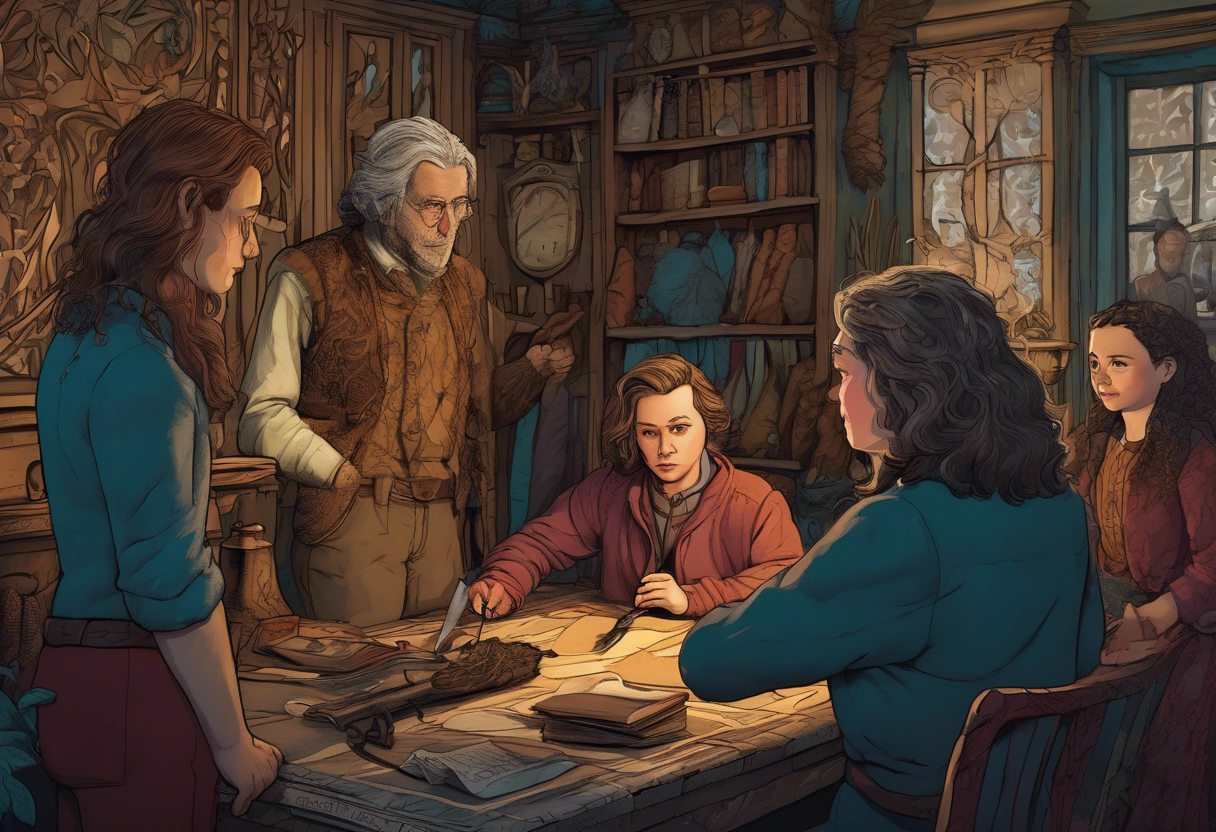Contents
The Subtle Knife: Portal to New Worlds and Darker Realities in His Dark Materials
Introduction
The Subtle Knife, published in 1997, is the second novel in Philip Pullman’s critically acclaimed His Dark Materials trilogy. Following The Golden Compass (also known as Northern Lights), this volume continues and expands the story with greater depth and complexity, shifting focus to new characters and multidimensional worlds. Philip Pullman, a renowned British author, blends elements of fantasy, science fiction, philosophy, and theological critique to craft a narrative that not only entertains but challenges traditional views on religion, consciousness, and morality. Unlike its predecessor, which introduced readers to the richly imagined world of Lyra Belacqua and her alethiometer, The Subtle Knife introduces Will Parry, a boy from our own world, and a mysterious artifact—the titular Subtle Knife—that can cut portals between worlds. This novel deepens the series’ exploration of power, knowledge, and rebellion against authoritarian control, establishing its distinct place in modern fantasy literature while pushing genre boundaries with its mature themes and intricate world-building.
Plot Summary
The Subtle Knife opens not in Lyra’s world but in our world, where 12-year-old Will Parry is caring for his mentally ill mother alone. After accidentally killing a man who intrudes on his home, Will flees and soon discovers a window, or portal, to another dimension—the strange, almost deserted city of Cittàgazze. There, he meets Lyra Silvertongue, the heroine from The Golden Compass, who is pursuing her own quest related to Dust, a mysterious substance central to the trilogy’s mythology.
Lyra and Will join forces and uncover the power of the Subtle Knife, an ancient weapon capable of slicing through any material and, crucially, opening gateways between worlds. The knife’s previous owner, Giacomo Paradisi, reveals its immense significance, and Will becomes its new bearer. With this tool, the pair navigate political intrigues involving key antagonists such as Mrs. Coulter and Lord Boreal (Sir Charles Latrom), who seek to control Dust and the fate of multiple universes.
As the story unfolds, Will learns more about his missing father, John Parry, who is revealed to be a shaman named Grumman in another world. John Parry’s knowledge connects directly to a rising celestial war between Lord Asriel’s forces and the authoritarian Authority, a god-like being. Amidst battles involving witches, angels, and church soldiers, Lyra and Will face betrayals, prophecies (notably that Lyra may be a "second Eve"), and a mounting cosmic conflict. The climax leaves readers at a tense crossroads, with alliances shifting and the ultimate confrontation between good and evil looming %[1][2][3][4]%.
Themes and Symbolism
The Subtle Knife intensifies the series’ exploration of profound themes, using character arcs and symbolism to ask fundamental questions about existence and free will.
-
Interdimensional Travel and Reality: The Subtle Knife itself symbolizes the ability to transcend boundaries—not just physical but metaphysical. It grants agency to the characters to navigate between multiple universes, representing the broader theme of exploring unknown truths and challenging perceived limits.
-
Loss of Innocence and Coming of Age: Both Will and Lyra confront harsh realities, from familial loss to moral ambiguities. Will’s sudden thrust into responsibility caring for his ill mother and defending against enemies marks his transition from childhood to a complex adult world, mirroring Lyra’s continued maturation.
-
Rebellion Against Authoritarianism: The struggle against the Authority—a divine figure imposing control—is allegorical of youthful defiance and quest for intellectual and spiritual autonomy. This rebellion ties to Pullman’s critique of institutionalized religion and dogma, emphasizing freedom of thought and individual conscience.
-
Dust and Consciousness: Dust, the mysterious particle connecting worlds, symbolizes consciousness, knowledge, and the interplay between science and spirituality. Its interpretation throughout the novel bridges quantum physics concepts with metaphysical questions about human nature.
-
Biblical Allusions and Prophecies: Lyra as the "second Eve" alludes to biblical archetypes, embodying themes of temptation, knowledge, and potential downfall or salvation. These references enrich the narrative’s moral complexity and challenge readers to reconsider theological narratives.
These themes interweave to create a dark, thought-provoking tale that transcends simple fantasy and touches on philosophical and ethical issues relevant to contemporary society [2][3][4].
Cultural Impact
Upon release, The Subtle Knife significantly expanded the cultural footprint of His Dark Materials. While The Golden Compass introduced readers to an enthralling fantasy world, the second book’s introduction of multiverse travel and darker themes captivated older readers and extended the series’ appeal across age groups. It became a major talking point in conversations about young adult literature that tackles complex and controversial subjects like religion, authority, and consciousness.
The novel’s influence extends into popular culture, inspiring adaptations across media. The His Dark Materials series has been adapted into radio dramas, audiobooks, stage plays, and notably an acclaimed BBC/HBO television series. The Subtle Knife contributes significantly to the narrative foundations of these adaptations, particularly with its key themes and introduction of Will Parry.
Furthermore, the concept of the Subtle Knife and the multiverse has found echoes in various fantasy and science fiction works, cementing Pullman’s narrative as a landmark in speculative fiction.
The novel’s controversial treatment of religious themes sparked debates and led to its banning or challenge in some educational contexts, which paradoxically boosted its notoriety and readership among young adults interested in questioning traditional narratives [1][3][4].
Critical Reception
The Subtle Knife was met with critical acclaim for its imaginative scope and mature handling of complex issues. Critics praised Pullman for deepening the story’s philosophical and theological stakes, as well as for his skillful world-building and character development. The introduction of Will Parry as a layered and relatable protagonist was noted as a successful expansion of the narrative beyond Lyra’s perspective.
However, the novel also drew controversy from some quarters due to its open critique of organized religion and its darker, more violent tones compared to the first book. Some critics and readers found the novel’s themes challenging or unsettling, especially for younger audiences, while others lauded its courage in addressing such issues.
Over time, literary scholars have analyzed The Subtle Knife for its rich intertextuality, feminist undertones, and its engagement with Enlightenment and Romantic philosophical traditions. It remains a pivotal work that has sparked diverse interpretations, from religious and political critiques to psychological and literary analysis.
Its critical legacy is one of pushing boundaries in young adult literature and fantasy, embedding its narrative within broader intellectual and cultural discussions %[1][2][3][4]%.
Legacy
Today, The Subtle Knife endures as a seminal work in fantasy literature, notable for its ambitious thematic scope and innovative storytelling. It not only bridges the narrative from The Golden Compass but also sets up the trilogy’s climactic exploration of power, knowledge, and resistance in The Amber Spyglass.
Its influence is evident in the way modern young adult fantasy embraces complex themes, multidimensional storytelling, and challenges to established worldviews. Writers and readers continue to find inspiration in Pullman’s ability to blend accessible storytelling with profound philosophical inquiry.
The novel’s enduring appeal is demonstrated by its continued presence in academic syllabi, fan communities, and its role as a touchstone for discussions on the role of fantasy in critiquing real-world ideologies. As adaptations bring the story to new audiences globally, The Subtle Knife remains a vital and transformative literary work.
Its legacy is that of a gateway—both literally through the multidimensional doors it describes and figuratively through the doors it opens to new ways of thinking and imagining [4].
References
- https://www.gradesaver.com/the-subtle-knife/study-guide/summary
- https://www.supersummary.com/the-subtle-knife/summary/
- https://www.pluggedin.com/book-reviews/subtle-knife/
- https://en.wikipedia.org/wiki/The_Subtle_Knife
- https://thecosmiccircus.com/book-review-the-subtle-knife-a-his-dark-materials-novel-by-philip-pullman/


